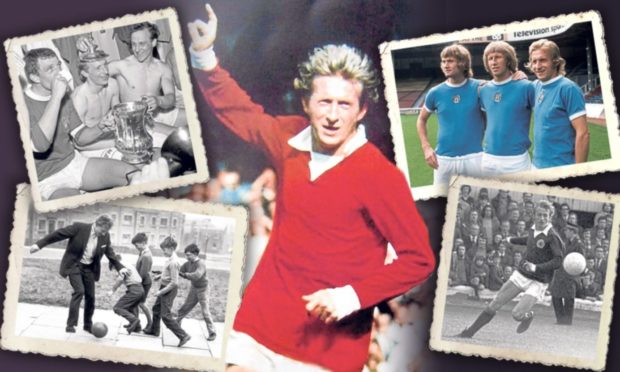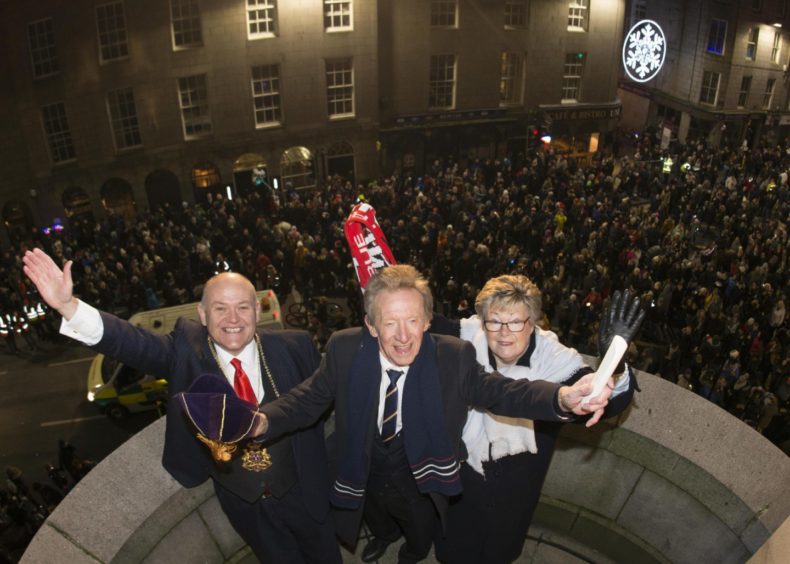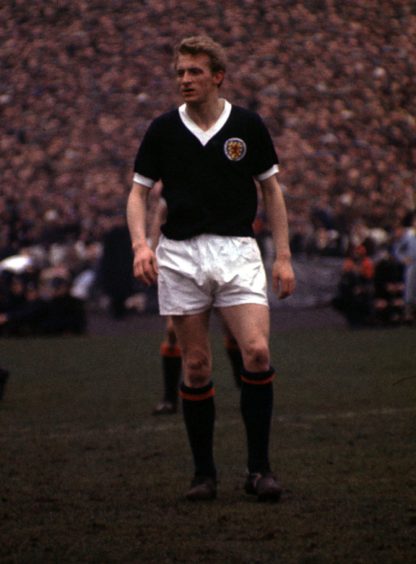Football legend Denis Law has said he believes heading the ball is directly to blame for his dementia diagnosis.
The former Manchester United and Scotland star has now called for all retired players to get tested every year for the condition.
Aberdeen-born Mr Law announced last week that he has mixed dementia, and said today he is in no doubt that the heavy leather balls he played with are responsible.
The 81-year-old told the Sunday Mail: “What else would it be? That was what caused damage to the brain.
“You were heading the ball, which was quite heavy in those days, but you didn’t think about it. We just thought it was normal.
“When you are playing two games a week and heading the ball in games then there are obvious dangers.
“I would support anything that stops this illness affecting other players.”
Family encouraged footballer to speak out
Speaking from his home near Manchester he shares with wife Diana, Mr Law said he had been flooded with messages of support since sharing his diagnosis.
However, he admitted he had been having problem with his memory for five years and that it was his family who encouraged him to go public about his dementia.
The former striker – who was given the Freedom of Aberdeen in 2017 – said: “My memory has not been so good.
“I hadn’t been going out and I hadn’t been seeing friends.
“After a while you start forgetting people you really know because you haven’t seen them, you haven’t spoken to them.”
Mr Law was capped 55 times for Scotland and is the country’s joint-top scorer of all time with 30 goals.
He believes the muddy pitches from his era were a factor in him getting the condition, as the footballs became soaked with water during games – making them more dangerous to head.
‘Definitely needs to be more research’
Towards the end of his career, he stopped heading the ball in training.
Today, young players under 12 are not allowed to head the ball during training and a huge amount of research has been undertaken to examine the links between football and dementia.
Other players who have battled dementia include Celtic’s Billy McNeill and Manchester United’s Nobby Stiles and Bobby Charlton.
Ex-Dundee United defender Frank Kopel, who was also a teammate at Old Trafford, died from dementia in 2008.
His widow Amanda has successfully campaigned for more research into the condition and its links to heading the ball, which was backed by DC Thomson.
Mr Law said: “People realise that if you head the ball even today that there are risks. There definitely needs to be more research.”
He also backs the SFA’s decision last year to ban under-12 players from heading the ball in training and supports plans for an extra sub to be put on if a player comes off with a head injury.
He said “Anything that stops this problem occurring would be welcome. Anything to stop the possibility of you having this illness.”


